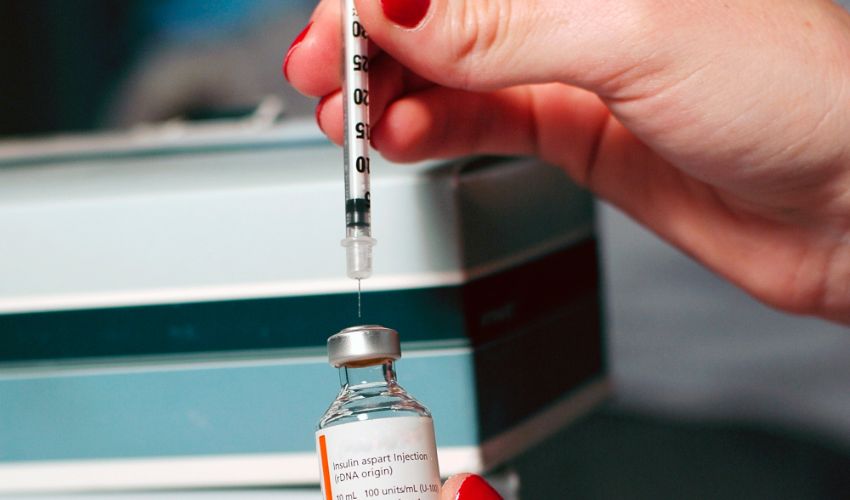Insulin resistance is a condition in which the body’s cells become less sensitive to insulin. Insulin is a hormone produced by the pancreas that regulates blood sugar levels by helping glucose (sugar) in the blood enter the body’s cells, where it can be used for energy. When the body becomes resistant to insulin, the cells don’t respond as well to the hormone, and glucose stays in the blood, leading to high blood sugar levels.
Insulin resistance is a precursor to type 2 diabetes and other metabolic disorders. It’s also linked to a range of health problems, including heart disease, stroke, and certain cancers.

There are several factors that can contribute to insulin resistance. Obesity is one of the most significant risk factors, as excess body fat can interfere with the body’s ability to use insulin properly. Genetics also play a role, as some people may have a genetic predisposition to insulin resistance. Other lifestyle factors, such as lack of physical activity, a diet high in processed foods and sugar, and chronic stress, can also contribute to insulin resistance.
Symptoms of insulin resistance can vary, depending on the severity of the condition. Early symptoms may include fatigue, weight gain, and increased hunger, while more advanced symptoms may include high blood pressure, high cholesterol, and difficulty losing weight.
To diagnose insulin resistance, doctors may use blood tests to measure fasting glucose and insulin levels. Other tests, such as an oral glucose tolerance test or a hemoglobin A1c test, may also be used to diagnose or monitor insulin resistance.
The good news is that insulin resistance can often be managed through lifestyle changes, such as regular exercise, a healthy diet, and stress management techniques. Losing weight can also help improve insulin sensitivity and lower blood sugar levels. In some cases, medications such as metformin may be prescribed to help manage insulin resistance.
In conclusion, insulin resistance is a serious condition that can lead to a range of health problems. However, with early diagnosis and proper management, it’s possible to minimize its associated health risks and improve overall health and well-being. If you’re concerned about insulin resistance, talk to your doctor about lifestyle changes and treatment options that may be right for you.
Bullet Points:
- Insulin resistance is a condition in which the body’s cells become less sensitive to insulin.
- Insulin resistance is a precursor to type 2 diabetes and other metabolic disorders.
- Insulin resistance is a growing health concern, affecting millions of people worldwide.
- Obesity, genetics, and other lifestyle factors can contribute to insulin resistance.
- Early symptoms of insulin resistance include fatigue, weight gain, and increased hunger.
- Advanced symptoms of insulin resistance include high blood pressure, high cholesterol, and difficulty losing weight.
- Blood tests can diagnose insulin resistance, including fasting glucose and insulin levels.
- Lifestyle changes, such as exercise and diet modification, can help treat insulin resistance.
- Medications, such as metformin, can also help manage insulin resistance.
FAQs:
What causes insulin resistance?
Insulin resistance can be caused by a variety of factors, including obesity, genetics, and other lifestyle factors.
What are the symptoms of insulin resistance?
Early symptoms of insulin resistance include fatigue, weight gain, and increased hunger. Advanced symptoms include high blood pressure, high cholesterol, and difficulty losing weight.
How is insulin resistance diagnosed?
Insulin resistance is diagnosed through blood tests, including fasting glucose and insulin levels.
Can insulin resistance be treated?
Yes, insulin resistance can be treated through lifestyle changes, such as exercise and diet modification, as well as medications like metformin.
Is insulin resistance reversible?

Yes, in many cases, insulin resistance can be reversed through lifestyle changes and medications.
Conclusion:
Insulin resistance is a growing health concern that can lead to type 2 diabetes and other metabolic disorders. It is caused by a variety of factors, including obesity, genetics, and other lifestyle factors. Early symptoms of insulin resistance include fatigue, weight gain, and increased hunger, while advanced symptoms include high blood pressure, high cholesterol, and difficulty losing weight. Insulin resistance can be diagnosed through blood tests and treated through lifestyle changes and medications like metformin. With proper management, insulin resistance can be reversed, and its associated health risks can be minimized.






















